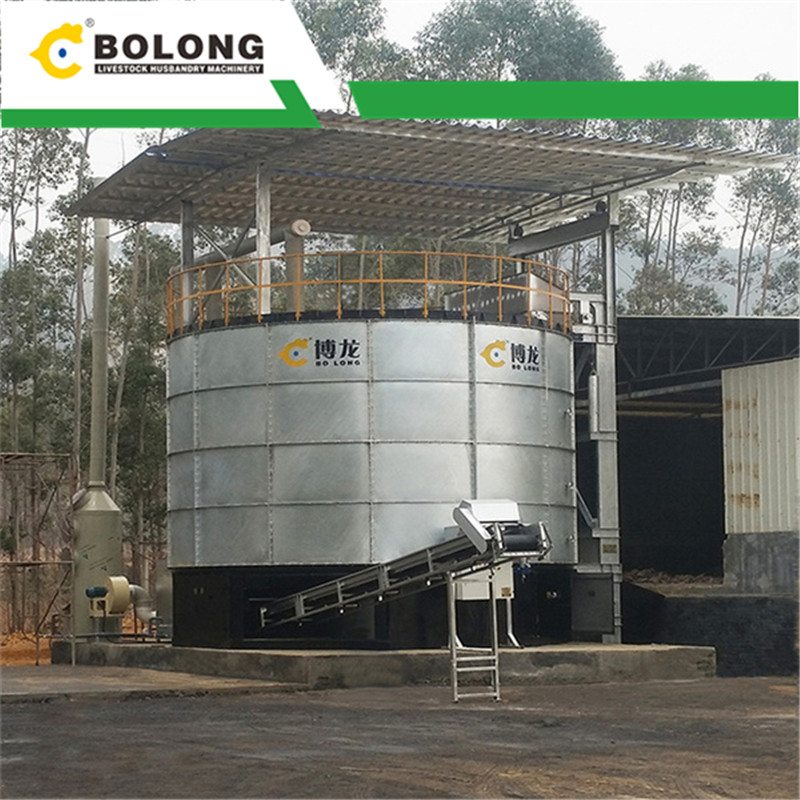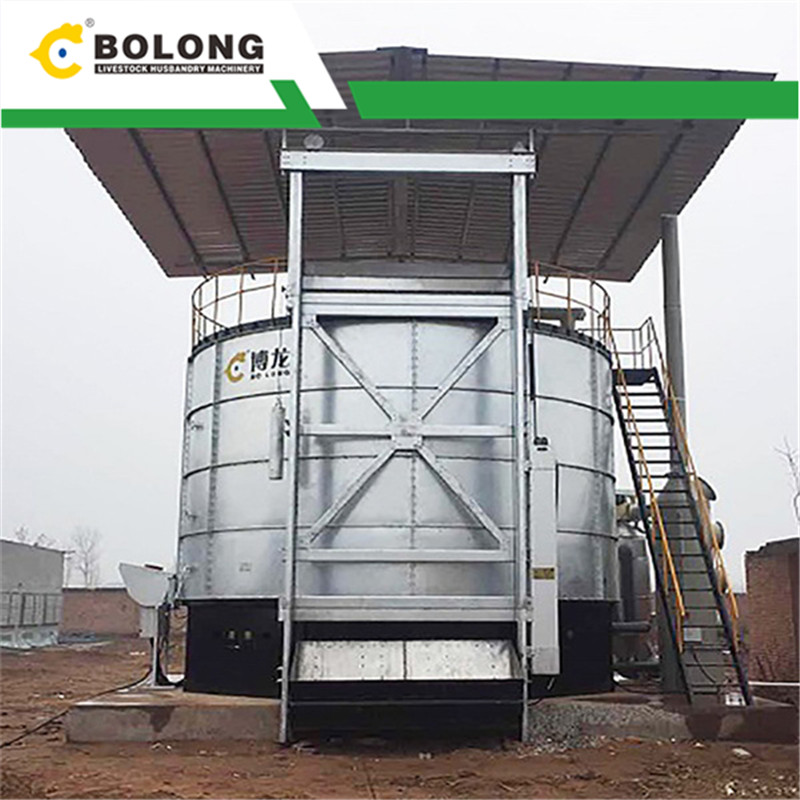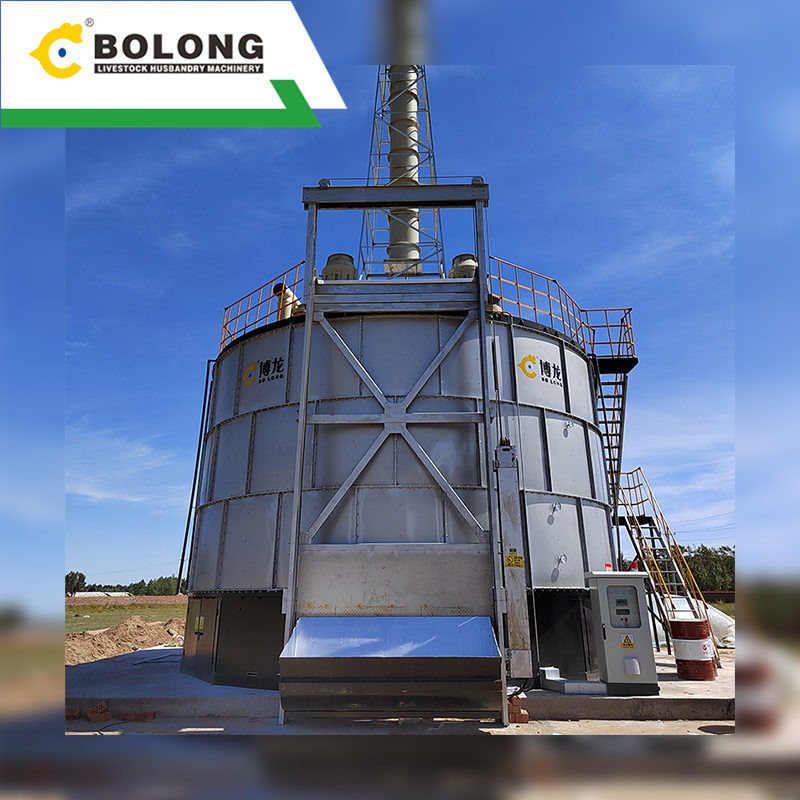As an important waste treatment equipment in modern agriculture, the organic fertilizer composting machine undertakes the heavy task of treating and converting organic waste into resources. It helps the sustainable development of agriculture by converting organic waste (such as livestock and poultry manure, straw, kitchen waste, etc.) generated by farms and breeding farms into high-quality organic fertilizer. However, in the long-term operation, the organic fertilizer composting machine will inevitably encounter various faults and equipment aging problems, which not only affect the operating efficiency of the equipment, but also may lead to a decline in the quality of the fertilizer. Therefore, timely maintenance and troubleshooting are particularly important. This article will focus on the common fault types, maintenance methods and troubleshooting techniques of organic fertilizer composting machines to help users improve the operating efficiency of the equipment and extend its service life.
Temperature and humidity control is one of the key factors in the organic fertilizer fermentation process. Unstable temperature and humidity environment will affect the activity of microorganisms, thereby reducing fermentation efficiency and even leading to fermentation failure. Too high temperature will inhibit the activity of microorganisms, while too low humidity will cause incomplete fermentation of materials. The reasons for unstable temperature and humidity control are usually control system failure, sensor failure or abnormal operation of the heating/cooling system.
During the aerobic fermentation process in the composting machine, smooth airflow is essential for providing oxygen. If the airflow is not smooth, it will lead to insufficient oxygen supply during the fermentation process, which will in turn affect the decomposition speed and quality of organic waste. Common causes of poor airflow include fan failure, ventilation duct blockage or unreasonable ventilation system design.
Long-term operation of the composting machine will lead to equipment aging, especially components such as temperature control system, ventilation system, conveyor belt, etc. Aging equipment may cause equipment efficiency to decline, or even complete equipment shutdown. Common equipment aging problems include decreased sensor accuracy, mechanical component wear, control panel failure, etc.
The efficient operation of organic fertilizer composting machines depends on the good growth of active strains. If the microorganisms in the equipment are inactivated or the strain activity decreases, the fermentation effect will be greatly reduced, resulting in substandard quality of the produced organic fertilizer. The cause of strain inactivation may be out-of-control temperature and humidity, lack of oxygen or insufficient nutrient supply.

In order to ensure the long-term and efficient operation of organic fertilizer composting machines, regular maintenance and inspection are essential. Here are some key maintenance methods:
Regular cleaning of the composting machine can prevent material accumulation and avoid the impact of impurities on the equipment during the fermentation process. Cleaning inside and outside the composting machine can not only extend the service life of the equipment, but also prevent sediment from affecting the balance of airflow and temperature and humidity.
The temperature and humidity control system of the composting machine mainly relies on sensors to adjust the temperature and humidity to ensure the stability of the fermentation process. Check the sensitivity and accuracy of the sensors regularly to ensure that they are not contaminated or damaged. If the sensor fails, it should be replaced in time. At the same time, check whether the control system fails to ensure its stable operation.
The ventilation system is one of the keys to the smooth operation of the composting machine. Poor airflow will lead to insufficient oxygen supply during the fermentation process and affect the activity of microorganisms. Check whether the fan system is operating normally to ensure smooth airflow. If the fan is found to be aging or not running smoothly, it should be replaced or repaired in time. In addition, the ventilation duct should be checked regularly to ensure that there is no blockage.
The equipment structure of the composting machine, such as the heating device, drainage system, stirring system, etc., may experience aging, corrosion and other problems as the use time increases. Check these parts regularly to ensure that they are not damaged or corroded to avoid affecting the overall equipment operation. In particular, the stirring system should be checked for smooth rotation to avoid uneven mixing of materials due to blockage or damage.
The microbial population in the composting machine is crucial to the fermentation process. If the strain used loses its activity, it may lead to poor fermentation results. Regularly check the survival of the strains and replace expired or inactivated strains in time to ensure the stability of the fermentation effect. In addition, ensure that the storage conditions and usage methods of the strains are correct to avoid affecting their activity due to the external environment.

Troubleshooting method: First, check whether the sensor is working properly and ensure that the control system can receive and process the sensor signal normally. Secondly, check whether the settings and adjustments of the temperature and humidity controller meet the fermentation requirements.
Troubleshooting method: Check whether the fan is operating normally and whether there are foreign objects blocking the airflow. Check whether the ventilation duct is blocked.
Solution: Clean the fan and ventilation duct to ensure smooth airflow. If the fan is damaged, replace it in time.
Troubleshooting method: Regularly check the operating status of various components inside the equipment, especially the wear of the temperature control system, ventilation system and mechanical components.
Solution: Replace aging or damaged components in time to ensure that all functions of the equipment are normal.

Organic fertilizer composting machines play an increasingly important role in agricultural production, but some faults are inevitable in the long-term operation of equipment. Regular maintenance and timely troubleshooting are the key to ensuring efficient and stable operation of composting machine. Measures such as cleaning and lubrication, checking sensors and control systems, and optimizing ventilation systems can effectively avoid the occurrence of faults and improve the working efficiency of composting machines. In addition, regular replacement of inactivated strains to ensure the activity of microorganisms is also an important means to improve the fermentation effect. Through these maintenance and troubleshooting methods, the service life of the composting machine can be extended to ensure its efficient operation in organic waste treatment and fertilizer production.